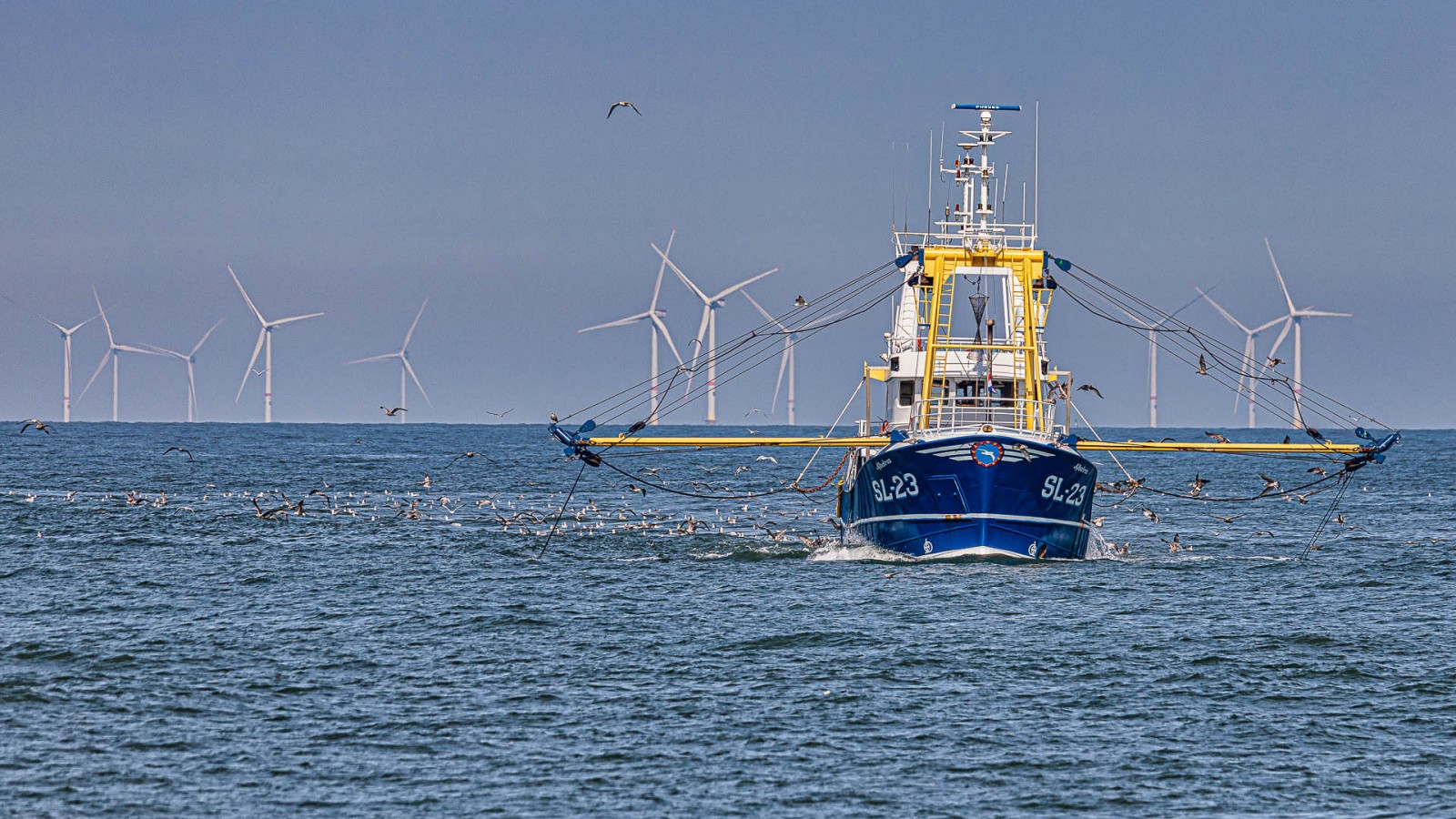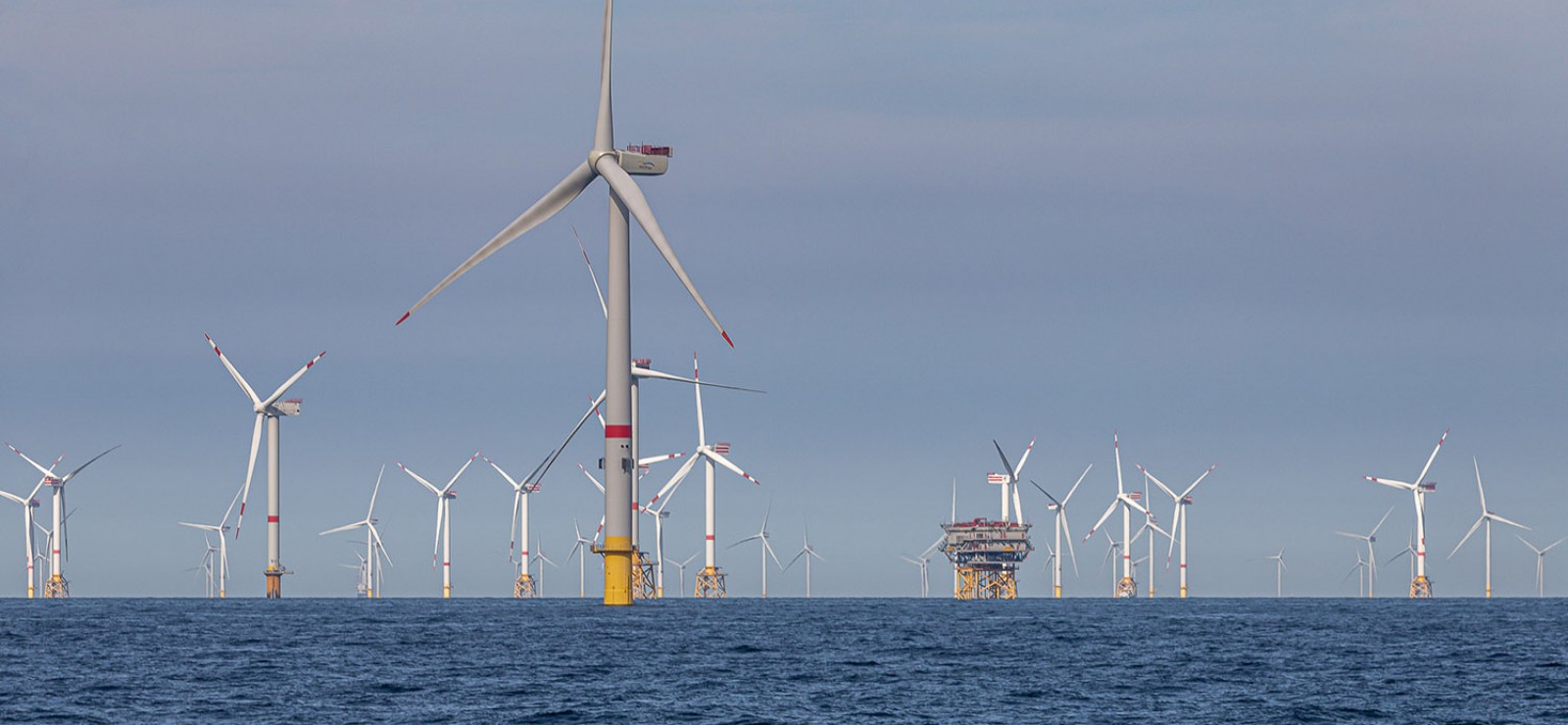Seventy per cent of the earth is covered in water, and yet we still only know a fraction of what all that water can offer us. The blue economy is discovering more and more brilliant applications and solutions hidden on and under the surface of the sea.
Solutions that may provide answers to some of the huge challenges we face as a society today. Could the blue economy save our planet? Or at least get our energy bills down? Jana Asselman of Ghent University is optimistic.
The ‘Blue economy’ is an umbrella term for all economic activities in, on and around oceans, seas and coasts. For some, the focus is on sustainability, while others see only the economic aspect.
Wide range of sectors
“The blue economy, as we used to know it, is rapidly evolving into a wide range of sectors developing products, applications and solutions in a sustainable way in, on and at sea. In Flanders, more and more companies are active in the blue economy, in fact it already accounts for 5.2% of Flemish GDP,” says Professor Jana Asselman of the Faculty of Bioscience Engineering.
“Known blue economy sectors are shipping, fishing, renewable energy at sea from wind and – yes – waves too. Oil and gas platforms are moving aside to make way for deep-sea mining. Whether this form of mining has a future as a sustainable activity remains to be seen. Nature organisations and scientists rightly question its impact on biodiversity in the deep sea.”
From underwater drones to medication
Some surprising sectors and applications that are also part of the blue economy include coastal tourism, and the use of underwater drones for wind farm inspections. A lot of biotech companies are also now turning to the sea for new technologies to make the world more sustainable. “According to market analyses, the global marine biotechnology sector will double within five years,” she says.
Furthermore, medical and chemical companies are increasingly using the sea to develop new medicines. “We already know the medical effects of some elements, but the sea is far from revealing all its secrets to us. The health effect of the sea is already well known: people who live by the sea tend to be healthier. They exercise more, but could there also be something in the sea that has a positive health effect on humans? This is being investigated in full.”
Solar panels at sea
A lot of new solutions looking to make our energy supply more sustainable are linked to the sea. Think carbon storage and renewable energy from wind and waves. Or this new idea: the installation of solar panels at sea, between wind turbines. Ghent University is participating in a project to see if this is possible. “What risks are involved? How do the panels react to the biggest challenge of all when installing at sea: salt?”
Expectations about solar panels at sea are high. Could renewable energy from the sea bring down our energy bills? “Rising energy prices confirm that we need to become less dependent on fossil fuels from foreign operators. Solar panels at sea are definitely part of the solution to generate more energy ourselves and reduce our bills. If the project goes well, the installation of solar panels could quickly move forward.”
Versatile seaweed
Sustainable solutions are also being considered for the fishing industry. “This includes seaweed farms, because seaweed is a hugely versatile product. It is an excellent substitute for protein and soya and can therefore help solve the problem of deforestation caused by soya cultivation. In addition, you can also use seaweed to store carbon, which is useful in our fight against climate change. We see it quite often: what we do at sea usually has several win-wins.” Already, the potential of seaweed has been understood by companies like Colruyt and others, as they have established their own seaweed farms at sea.
Legal and spatial challenge
The fact that a lot of sectors are heading to the North Sea is logical, Jana believes. “In densely built-up Flanders, there is often little room or support for wind turbines.” The North Sea is small, but the possibilities are immense. This leads to new challenges in legal and spatial terms. Belgium is a forerunner in marine spatial planning, indeed it is one of the first countries to have effectively drawn up a marine spatial plan.
“Good and legally-sound marine spatial planning is crucial if we want to operate all these different businesses without problems. You can’t just plan a wind farm on a shipping route for example, and maritime law is already very complex because of the international dimension.”
They understand this complexity at the United Nations. It took member states 15 years to reach an agreement on ocean protection, but it is finally here. By 2030, 30 per cent of international waters must be protected. The ‘High Seas Treaty’ is supposed to protect biodiversity on the high seas and control environmental activities at sea.
It has taken a long time to reach an agreement, but Jana is cautiously optimistic. “It is an important agreement, as it protects those parts of the ocean that no one is responsible for. At the moment barely one per cent of the sea is protected. It’s insufficient.”
A lack of people
All in all, this complexity means companies need to identify a whole range of highly skilled profiles. “There is a big need for expertise in research and development within the blue economy among companies. But also legal and economic profiles. It’s why the consortium on blue economy, Marine@UGent, exists at Ghent University for some time now, with collaborators from more than 52 different research groups, and 9 of the 12 faculties. Our multidisciplinary operation is our strength. We encourage the development of the blue economy in companies with our research.”
Jana Asselman is Professor of Marine Biotechnology at the Ghent University campus in Ostend (Blue Economy). Her research focuses on the interactions between the sea and human health. Her favourite place is Campus Coupure; it’s where the water flows through the city to ultimately end up in the sea

A first for Belgium: Ghent University organises the first postgraduate course on the blue economy
Both Belgian and European companies are anxious to see a boom in the blue economy, but at present they are restricted due to a lack, amongst other things, of people with the right kind of profile. The postgraduate course ‘Postgraduate Studies in Blue Resources for the Blue Economy’ is a first step by Ghent University towards formulating a response to this growing need.
An enthusiastic Tim Deprez, the coordinator of international marine training at Ghent University and someone with lifelong experience of the blue economy, explains for whom and what the course is intended: “This international programme – and it is international, because we are working with the Galway-Mayo Institute of Technology (GMIT) in Ireland – is aimed both at those are already working in the blue economy, and at those with a scientific or other suitable background who are interested in a job in this sector. We want to appeal to people with a broad range of profiles: from people with legal or financial training, to engineers or people with a scientific background, linked to the blue economy.
The course will teach students how to use and apply their scientific knowledge within the various companies. By offering internships in both companies and scientific institutions, we are keen to focus on (multidisciplinary) cross-pollination. Working students can also follow an internship at their place of work, upon condition that their company is active within the marine sector,” Tim Deprez continues.
What sets the course apart is the highly customised approach, tailored to suit the individual student. “By interviewing each student individually, we can determine which skills they are lacking, and can advise on the best subjects for them to choose as part of the course. For example, we would recommend that someone with a legal background follow a course in oceanography. In order to gain a broader view.”
Jana Asselman is Professor in Marine Biotechnology and works at the Ghent University blue economy campus in Ostend. Her research focuses on the link between the sea and human health. Her favourite place is Campus Coupure, where the water flows through the city and finally out into the sea.
Tim Deprez is Professor in Marine Biology. Since his doctorate, he has become a specialist in the organisation of international marine training initiatives. His greatest passions are innovation in education and the use of digital aids within education. Since September 2021 he has been developing his activities relating to lifelong learning further at the Ostend campus. His passion for music and working with wood provide him with the perfect work-life balance.
Read also
What if we used nature rather than concrete to protect our coasts?
Rising sea levels are a global challenge for coastal areas. Traditionally, the solution has been concrete sea walls, but are there more natural solutions?
Sunken warship still leaves tracks in North Sea
During the Second World War, the patrol ship John Mahn sank off the Belgian coast. Bio-engineers at Ghent University, together with the Flanders Marine Institute, studied its impact on life in the North Sea.
A swim in the North Sea: is it safe (with all those jellyfish)?
Jellyfish are the last thing that many beach visitors want to see, let alone feel in the water. Even so, there is no need to be too concerned and the poison from our jelly fish is little to worry about. Been stung? Then there are some things you can do to relieve the pain. Pee for example, or is that a myth?
Why you should never underestimate the current in the North Sea
Every year you hear lifeguards at the Belgian coast appeal to people not to swim in unsupervised zones. And quite right too, say North-Sea specialists Jana Asselman, Sara Vandamme and Colin Janssen. After all, there is lots going on under the water’s surface.




